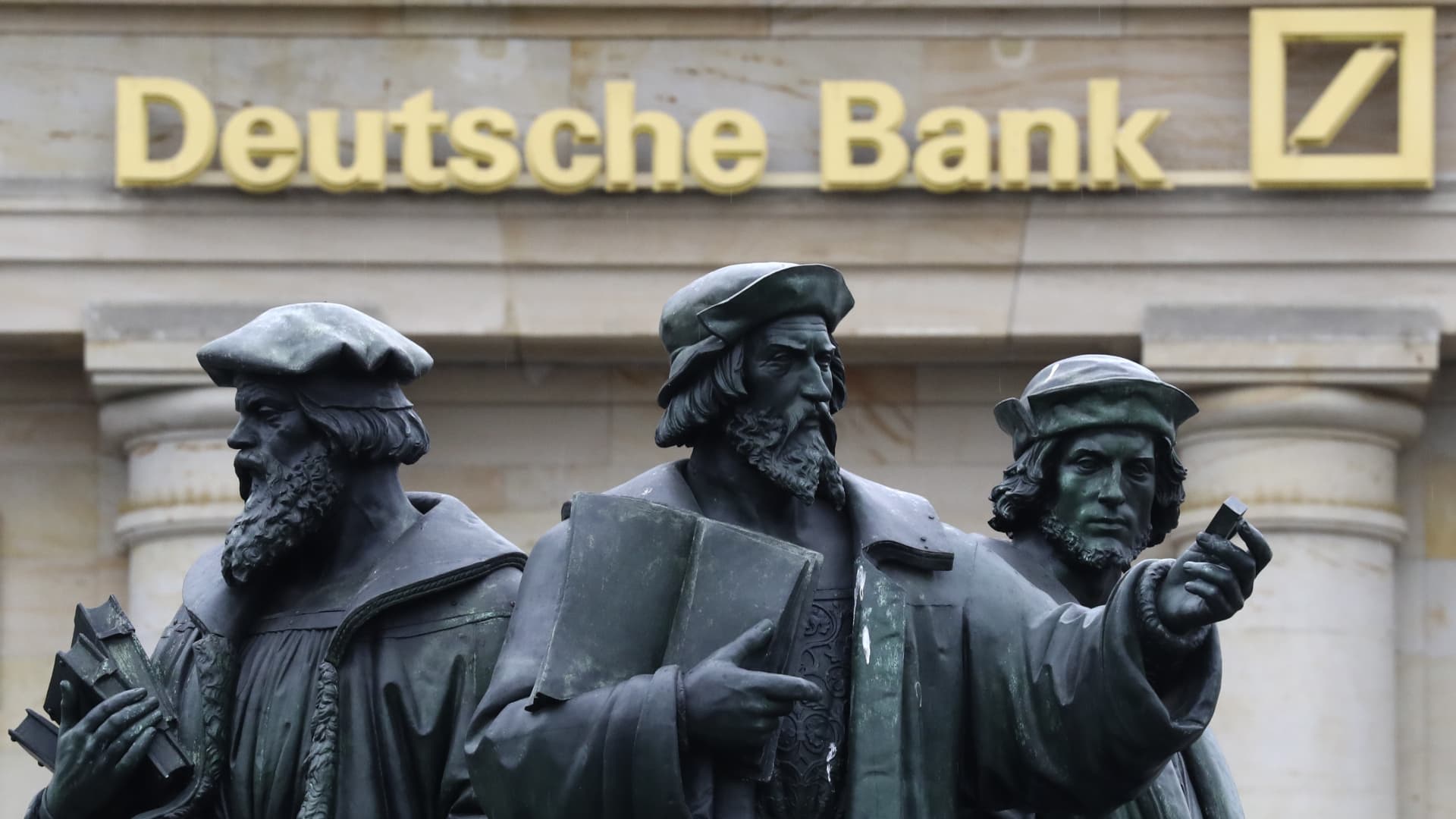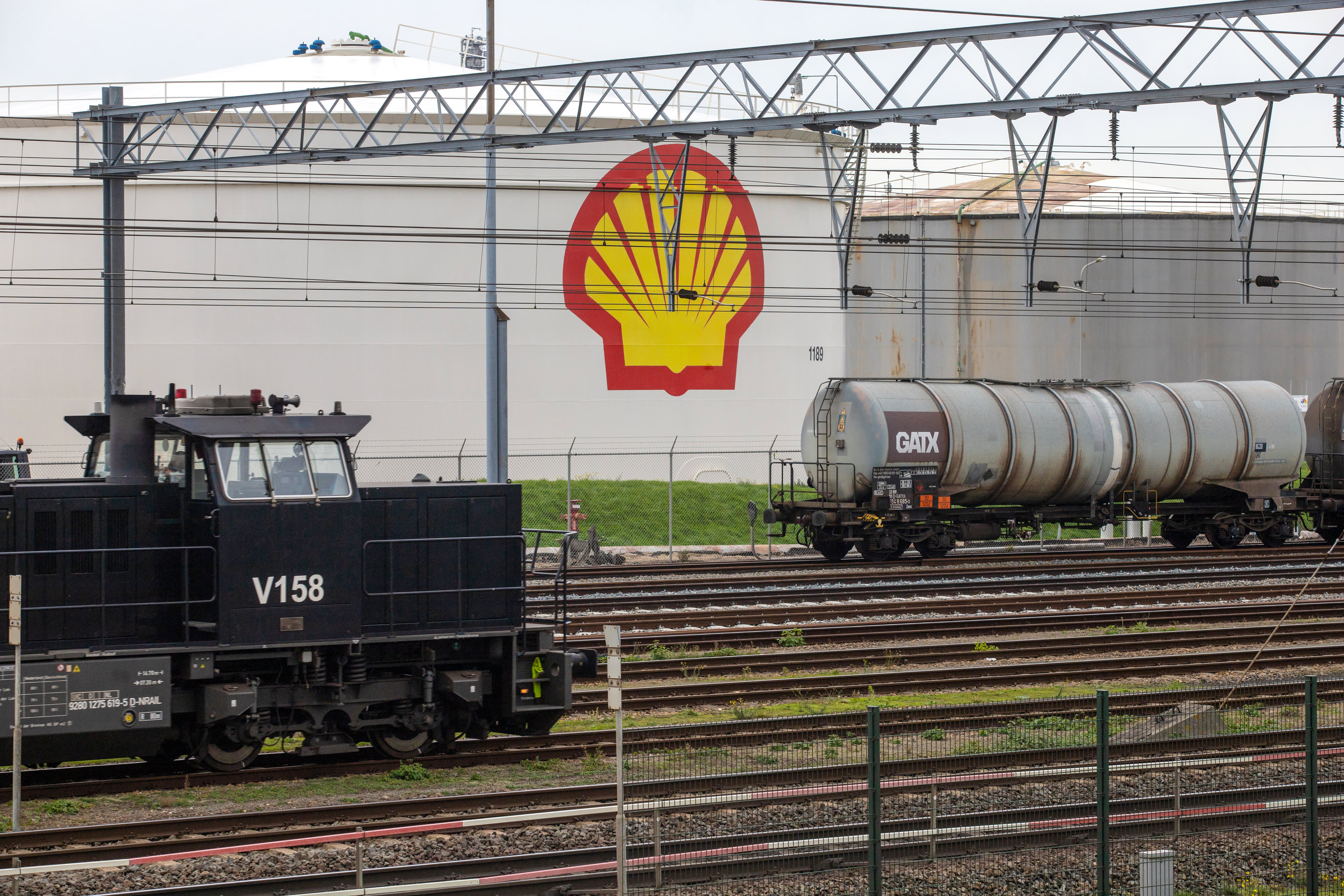Deutsche Bank on Thursday reported its 10th straight quarter of profit, but shares retreated as analysts honed in on an uncertain outlook and weakness in the investment bank.
Deutsche Bank reported a 1.8 billion euro ($1.98 billion) net profit attributable to shareholders for the fourth quarter, bringing its annual net income for 2022 to 5 billion euros, a 159% increase from the previous year.
related investing news
The German lender almost doubled a consensus estimate among analysts polled by Reuters of 910.93 million euro net profit for the fourth quarter, and exceeded a projection of 4.29 billion euros on the year.
Despite the lofty net profit figures, Deutsche Bank shares were 2.4% lower by mid-morning in Europe as analysts honed in on the uncertainty of the macroeconomic outlook, evidenced by the bank’s reluctance to issue a share buyback at this stage.
Amit Goel, co-head of European banks equity research at Barclays, characterized the results as “a bit mixed,” given that the strong revenue message for 2023 was offset by a weaker-than-expected fourth quarter in many other metrics, particularly the investment bank.
“The revenue miss vs consensus and our estimate was also largely driven by lower IB and corporate center result partly offset by better corporate bank; within the IB both FIC and origination and advisory were lower,” Goel noted.
Total revenues at the investment bank fell 12% year-on-year in the fourth quarter. Its contribution to Deutsche Bank’s core bank pre-tax profit fell 6% to 3.5 billion euros.
Restructuring plan
The bank’s full-year results follow a sweeping restructuring plan, announced in 2019, to reduce costs and improve profitability. It saw Deutsche Bank exit its global equities sales and trading operations, scaling back its investment bank and slashing around 18,000 jobs by the end of 2022.
The result marks a significant improvement from the 1.9 billion euros reported in 2021, and CEO Christian Sewing said the bank had been “successfully transformed” over the last three and a half years.
“By refocusing our business around core strengths we have become significantly more profitable, better balanced and more cost-efficient. In 2022, we demonstrated this by delivering our best results for fifteen years,” Sewing said in a statement Thursday.
“Thanks to disciplined execution of our strategy, we have been able to support our clients through highly challenging conditions, proving our resilience with strong risk discipline and sound capital management.”
Post-tax return on average tangible shareholders’ equity (RoTE), a key metric identified in Sewing’s transformation efforts, was 9.4% for the full year, up from 3.8% in 2021.
Other quarterly highlights include:
- Loan loss provisions stood at 351 million euros, compared to 254 million euros in the fourth quarter of 2021.
- Common equity tier 1 (CET1) ratio — a measure of bank solvency — came in at 13.4%, compared to 13.2% at the end of the previous year.
- Total net revenue was 6.3 billion euros, up 7% from 5.9 billion euros for the same period in 2021 but slightly below consensus estimates, bringing the annual total to 27.2 billion euros in 2022.
Deutsche also recommended a shareholder dividend of 30 cents per share, up from 20 cents per share in 2021, but did not announce a share buyback.
“On the share repurchases, given the uncertainty of the environment today that we see, also some regulatory changes that we’d like to see both the timing and the extent of, we’re holding back for now. We think that’s the prudent action to take, but we intend to revisit that,” CFO James von Moltke told CNBC on Thursday.
He added that the bank would likely reassess the outlook in the second half of this year, and reaffirmed Deutsche’s target for 8 billion euros in capital distributions to shareholders through to the year 2025.
Deutsche’s corporate banking unit posted 39% growth in net interest income, aided by “higher interest rates, strong operating performance, business growth and favorable FX movements.”
Fourth quarter ‘tailed off’
The bank said some tailwinds were offset by a slump in dealmaking that has affected the wider industry in recent months.
“The fourth quarter tailed off a little bit for us in November and December, but still was a record quarter in our FIC (fixed income and currencies) business for a fourth quarter, 8.9 billion [euros] for the full-year,” CFO von Moltke told CNBC’s Annette Weisbach.
“We’re thrilled with that performance but … it came a little bit short of analyst expectations and our guidance late in the year.”
He said that January had been a month of strong performance for the bank’s trading divisions, as market volatility persisted.
“That gives us some encouragement that our general view, which was that volatility and conditions in the macro businesses would taper off over time, but would be replaced if you like from a revenue perspective with increasing activity in micro areas like credit, M&A, equity and also debt issuance,” he said.
“We see that still intact as a thesis of what ’23 will look like.”



